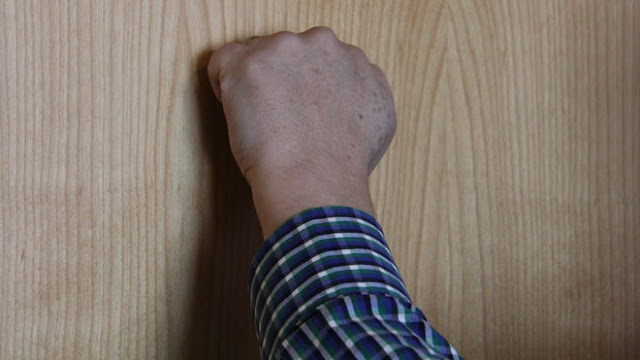Collop Monday: pennies & pranks before pancakes
 |
| Sudbury.com |
Today is Collop Monday,
Gie's a collop, an' let's away.
Prior to Shrove Tuesday (Mardi Gras) in Shrovetide, there's Collop Monday.
Save your bacon fat!


The British name Collopy Monday is after the traditional dish of the day, consisting of slices of leftover meat (collops of bacon) along with eggs. It is eaten for breakfast and is part of the traditional Lenten preparations. In addition to providing a little meat, the collops were also the source of the fat for the following day's pancakes. - WP
Penny Scramble
In 1881, Edward Brook of Meltham began a custom of distributing "new pennies" to local children on Collop Monday. A similar practise of distributing small gifts took place in Meltham on other days of year, including Whit Monday. Reportedly the coins would be handed out from a leather pouch, then any that remained would be thrown into the street and a "scramble" would take place to retrieve them. The children would then often use the money to buy sweets. - Huddersfield Exposed
Yorkshire Post and Leeds Intelligencer (12/Feb/1929)
“Collop Monday” was observed at Meltham, near Huddersfield, yesterday, by giving a newly minted penny to each child who appeared at the gates of Meltham Mills, and later by scattering further coins to an assembly of the young. I nearly assembled myself, but I am afraid it would not have been much use.
Formerly the children made the round of the village, saying, “Pray, dame, a collop or a halfpenny” at each house. But this has been dropped, and the scattering of shining new pence has taken its place. The custom was begun in 1881 by the late Mr. Edward Brook and has been continued since his death in 1904 by his son, Lieut.-Col. Charles Brook. He, however, was absent yesterday, and so his son, Capt. Edward Wm. Brook — who was equerry to the Duke of Gloucester on his recent big game hunting expedition — came to the rescue. Among those present was Mr. John Pogson, foreman joiner at the Mills, who has been present at the ceremony ever since it started, and who has 66 years of working life to his credit. - Huddersfield Exposed
A Night for Pranking: The origin of Nicky Nicky Nine Doors.
Nickanan night, also known as Collop Monday or Peasen Monday, is the Monday before Lent and once had great significance in Cornwall. Primarily it was a time to eat pea soup, which was prepared in nearly every house from dried split peas. The eating of salt bacon or gammon was also common on this night, and often accompanied the pea soup.
To children Nickanan Night was “roguery night” and involved playing practical jokes. In Mousehole, this included moving small fishing boats up the hill from the harbour to the village salt pond. Children would also play “Nick Nack”, knocking on doors and running away or demanding a pancake to prevent further mischief. Sometimes, they chanted the rhyme “Nicka nicka nan, Give me some pancake, and then I'll be gone, But if you give me none, I'll throw a great stone, And down your door shall come”. - Cornwall Forever
Nickanan Night described by Sir Arthur Thomas Quiller-Couch
British writer Sir Arthur Thomas Quiller-Couch (1863 – 1944) wrote under the pseudonym Q. He was a prolific novelist also known for The Oxford Book of English Verse 1250–1900, and known for literary criticism.
On the day termed Hall Monday, which precedes Shrove Tuesday, about the dusk of the evening, it is the custom for boys, and, in some cases, for those who are above the age of boys, to prowl about the streets with short clubs, and to knock loudly at every door, running off to escape detection on the slightest sign of a motion within. If, however, no attention be excited, and especially if any article be discovered negligently exposed, or carelessly guarded, then the things are carried away; and on the following day are discovered displayed in some conspicuous place, to expose the disgraceful want of vigilance supposed to characterise the owner. The time when this is practised is called 'Nicka-nan night' and the individuals concerned are supposed to represent some imps of darkness, that seize on and expose unguarded moments.









Comments
Post a Comment
Your comments will be appreciated and posted if 1) they are on topic and 2) preserve decorum.
Stand by your word.